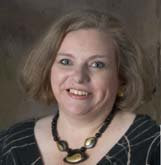Surviving Spring in the U.S. Allergy Capital
Media Contact: Keith Hautala, (859) 257-1754, x231 From University of Kentucky News-Lexington KY
LEXINGTON, Ky. (April 14, 2008) − It's hard to imagine a more beautiful place than the Bluegrass in spring, as the dogwoods, redbuds, tulip magnolias and flowering plums burst forth in spectacular displays of color. But for allergy sufferers, the blooms herald the onset of pollen season: three months of sniffling, sneezing, itchy, red-eyed misery.
This year, Lexington has the dubious honor of being in the No. 1 spot on a list of "Spring Allergy Capitals," released last week by the Asthma and Allergy Foundation of America. Lexington jumped from No. 52 last year, but it has topped the list once before, in 2005.
The list, now in its sixth year of publication, ranks the 100 most populous metropolitan areas in the United States, with those near the top deemed "the most challenging places to live with spring allergies." Rankings are determined by a composite score based on pollen score, medication use and allergist-to-patient ratio.
The pollen scores for each city are calculated by assessing the airborne concentrations of more than 40 different types of pollen during the months of March, April and May, and assigning each a relative weight corresponding to the proportion of the local population with a known sensitivity to that specific type. This gives a more accurate picture of local allergy problems than a raw pollen count, said Mike Tringale, a spokesman for AAFA.
Lexington's pollen score this year, based on data collected last spring, was in the 98th percentile, meaning it was higher than 98 percent of all scores. The previous year's score was closer to the middle of the pack, in the 54th percentile. Since pollen counts vary from year to year, a high ranking on this year's list does not give any indication whether this year's allergy season will be worse than any other, Tringale said.
Helping to push Lexington to the top of the list were the high number of medications used per patient (3.4, compared to a list-city average of 2.5) and low number of board-certified allergists per patient (2.8 for every 10,000 patients, compared to an average of 4.1).
Dr. Beth Miller, associate professor at the University of Kentucky College of Medicine and director of the UK HealthCare Asthma, Allergy and Sinus Clinic, says there are plenty of things allergy sufferers can do to make spring more bearable, with avoidance being the strategy she recommends above all others.
"If you know what's making you sick, staying away from it is obviously a good idea," Miller said. "So, keep windows closed, both in the car and at home. Shower after working outdoors, and stay indoors as much as possible on heavy pollen days."
For patients who have symptoms even while practicing avoidance, medical management is the next step. Miller says many patients tend to overmedicate – or to not take the most effective medication for their particular symptoms – so the first step she recommends is consulting a board-certified allergist.
"Your doctor can work with you to accurately define your specific allergens and develop an individual treatment plan," she said. "Some patients need minimal medication, while others require more aggressive therapy."
Immunotherapy, or allergy shots, often brings relief to patients who don't respond to medical management. The treatment consists of a series of injections given at frequent intervals (often once or twice a week to start), designed to reduce the body's sensitivity to specific allergic stimuli, Miller said.
Miller stressed that those with seasonal allergies need to realize that help is available, and to seek it out.
"Seasonal allergies are a serious illness that can really wreak havoc with quality of life," she said. "It isn't something I would recommend anybody tackle on their own. A good allergist doesn't just treat symptoms, but ultimately empowers patients to manage their own illness by teaching them how to exist comfortably in an environment that is hostile to their immune systems. Spring doesn't have to be a time of suffering."
#####
Ah-choo! Joyce Pinson, that's me, is a Kentucky health insurance agent who sneezes alot in the spring. Thank goodness I am only allegic to pollen and not horses! You can visit www.pinsoninsurance.com for Kentucky insurance quotes and information.

No comments:
Post a Comment